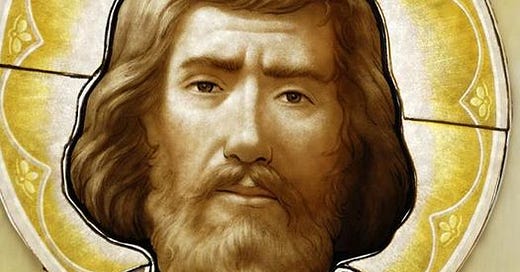Lessons 5 & 6 from the Divine Office of Saints Philip and James, Apostles.
Lessons 5 & 6 from the Divine Office of Saints Philip and James, Apostles.
.
James, surnamed the Just, the brother of our Lord Jesus Christ, was a Nazarite from the womb. During his whole life he never drank wine or strong drink, never ate meat, never shaved, and never took a bath. He was the only man who was allowed to go into the Holy of Holies. His raiment was always linen. So continually did he kneel in prayer, that the skin of his knees became horny, like a camel's knees. After Christ was ascended, the Apostles made James Bishop of Jerusalem: and even the Prince of the Apostles gave special intelligence to him after that he was delivered from prison by an angel. When in the Council of Jerusalem certain questions were mooted touching the law and circumcision, James, following the opinion of Peter, addressed a discourse to the brethren, wherein he proved the call of the Gentiles, and commanded letters to be sent to such brethren as were absent, that they might take heed not to lay upon the Gentiles the yoke of the Law of Moses. It is of him that the Apostle Paul saith, writing to the Galatians: Other of the Apostles saw I none, save James the Lord's brother.
So great was James' holiness of life that men strove one with another to touch the hem of his garment. When he was ninety-six years old, and had most holily governed the Church of Jerusalem for thirty years, ever most constantly preaching Christ the Son of God, he laid down his life for the faith. He was first stoned, and afterward taken up on to a pinnacle of the Temple and cast down from thence. His legs were broken by the fall, and he was wellnigh dead, but he lifted up his hands towards heaven, and prayed to God for the salvation of his murderers, saying: Lord, forgive them, for they know not what they do. As he said this, one that stood by smote him grievously upon the head with a fuller's club, and he resigned his spirit to God. He testified in the seventh year of Nero, and was buried hard by the Temple, in the place where he had fallen. He wrote one of the Seven Epistles which are called Catholic.



